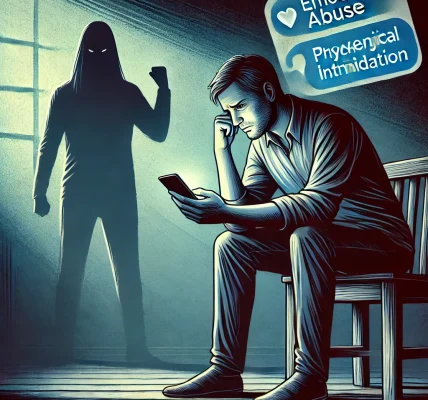Introduction
Parental alienation is a serious issue that can have long-lasting emotional and legal consequences for both parents and children. It occurs when one parent manipulates or influences a child to reject or harbor negative feelings toward the other parent, often during or after a divorce or custody battle. This can impact custody decisions and legal rights, making it essential to understand how courts handle parental alienation and what legal remedies are available.
In this article, we will explore:
- What parental alienation is and its signs
- How it affects child custody and legal rights
- Legal steps to counter parental alienation
- Preventative measures to protect parent-child relationships
Disclaimer: This article provides general legal information and does not constitute legal advice. Consult a qualified family law attorney for specific legal guidance.
Understanding Parental Alienation
What Is Parental Alienation?
Parental alienation occurs when one parent intentionally or unintentionally influences a child to reject, fear, or mistrust the other parent. This is often done through:
- Negative talk about the other parent
- False accusations of abuse or neglect
- Restricting contact between the child and the targeted parent
- Creating emotional dependency so the child feels guilty for loving both parents
- Encouraging defiance against the other parent’s authority
Over time, the child may start to believe the alienating parent’s narrative, leading to a strained or severed relationship with the other parent.
Signs of Parental Alienation in a Child
- Expresses unjustified anger or hatred toward one parent
- Repeats negative statements about the targeted parent without personal experience
- Shows fear or anxiety when asked to spend time with the targeted parent
- Rejects extended family members of the alienated parent
- Uses adult-like language when discussing legal matters
How Parental Alienation Affects Custody Cases
Legal Implications in Child Custody
Parental alienation can significantly influence custody decisions in court. Judges make custody decisions based on the best interests of the child, and courts consider alienation as a form of emotional abuse that can negatively impact a child’s well-being.
- If proven, parental alienation can lead to modifications in custody arrangements.
- The alienating parent may lose custody or face supervised visitation.
- Courts may order therapy or reunification counseling to repair the parent-child relationship.
- False accusations of abuse as part of alienation tactics can lead to legal consequences for the accusing parent.
Impact on Parental Rights
When parental alienation is severe, the alienated parent may suffer irreparable damage to their relationship with the child. This can result in:
- Loss of custody
- Restricted or supervised visitation
- Inability to influence major decisions regarding the child’s education, health, and upbringing
- Emotional distress and financial burdens due to prolonged legal battles
Legal Steps to Counter Parental Alienation
1. Document Evidence
To prove parental alienation in court, the targeted parent should gather strong evidence, including:
- Text messages, emails, or recordings that show the alienating behavior
- Witness statements from teachers, therapists, or family members
- Proof of denied visitation or communication with the child
- Psychological evaluations showing emotional distress in the child
2. Request a Custody Evaluation
A court-appointed evaluator or psychologist can assess the situation and provide expert testimony. This can be crucial in proving that the alienating parent is harming the child’s well-being.
3. File a Motion to Modify Custody
If you suspect parental alienation, consult with a family law attorney to file a custody modification request. The court may adjust custody to protect the child’s emotional and mental health.
4. Seek Reunification Therapy
Judges often recommend reunification therapy to help rebuild the damaged parent-child relationship. A licensed therapist can mediate and facilitate a healthier bond between the child and the alienated parent.
5. Enforce Court Orders
If the alienating parent refuses to comply with court-ordered visitation, the targeted parent can file a contempt motion, which may result in:
- Fines or legal penalties for the alienating parent
- Make-up parenting time for the alienated parent
- Possible custody adjustments
6. Educate the Court About Parental Alienation
Some judges may not fully understand parental alienation, so it’s important to present expert testimony or research-backed evidence that explains how it harms children.
Preventing Parental Alienation
For Parents Going Through Divorce
- Avoid badmouthing the other parent in front of the child.
- Encourage the child to maintain a healthy relationship with both parents.
- Follow custody agreements and facilitate co-parenting.
- Seek professional co-parenting counseling if necessary.
For Parents Facing Alienation
- Stay calm and patient, as reacting negatively may worsen the situation.
- Keep consistent contact with the child through calls, messages, or video chats.
- Seek legal intervention early to prevent further damage.
- Educate your child about both parents’ love without forcing them to choose sides.
Conclusion
Parental alienation is a serious issue that can cause long-term damage to parent-child relationships and affect legal custody rights. Courts recognize it as a form of emotional abuse, and targeted parents have legal options to fight back.
If you believe you are experiencing parental alienation, consult with a family law attorney to explore legal remedies and protect your rights as a parent. The goal should always be to prioritize the child’s emotional and psychological well-being by fostering a loving and supportive co-parenting environment.




